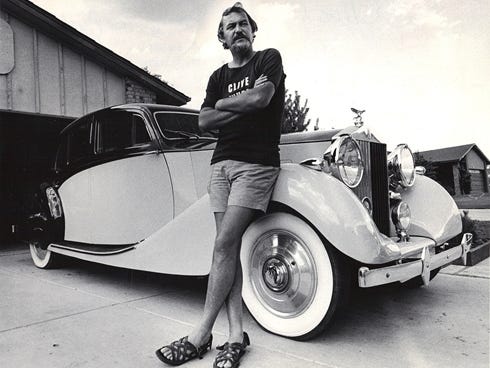by James Jackson
Mr. Jackson is a former US Navy Chief Petty
Officer. He has spent almost two decades in military service with a large
portion of that as a tactical instructor.
During his years in service, he has been part of
fielding teams, mobile training teams and interacted with other branches of the
US Military as well as foreign military units.
Since leaving the Navy, he has served as an
advisor for diplomatic security and as a private military contractor.
He is an author, an outdoor survival instructor,
serves as a disaster mitigation consultant, and is a Military Technical
Advisor for several published authors.
For every author there is, or should be, a
requirement that they conduct due diligence research. That way they will be to
provide enough details that the reader is immersed within the story they tell and
not taken out by something that just doesn’t sound right. Research is extremely
important.
Due diligence would require that the author be able
to describe the locale that their story takes place in in intricate detail. How
many times have you read something where the story fails to cover some basics
and just plain falls short? The concept is simple to understand. If a story is set in Washington D.C., there
are a lot of locations that are known to the locals that won’t be something
that Google maps will show. Case in point, there is a museum close to the
Smithsonian Complex that is not part of that complex, that contains medical
oddities. It’s often mistaken as being part of that complex yet has no
association with it. Some of the locals know of it, but tourists would be hard
pressed to find it.
While that is one example of something that could be
added in to a novel to increase the details, another example was a novel I read
many years ago that was a spy thriller set in that same city. The details were
so intense that years later, a tourist that had read that same book, traveled
to D.C and was amazed that the location was just as true to life as depicted
within the book. He visited the Lincoln Memorial and went downstairs to see if
there really was a drinking fountain right outside the door to the restroom. It
was exactly as described. When the tourist reached under the fountain to see if
there was space for a magnetic holder, a key element within the book as it was
used as a message for the main character, he was amazed to find one. Inside,
there was a simple note, “Good book, wasn’t it?”

That is the level of detail that every author should
strive for. That brings us to technical assistance. What is technical
assistance? For some, that might mean the tech guy you call when your computer
goes down. Technical Assistance or Military Technical Assistance for authors is
a service that can provide a level of detail to authors that is unprecedented. While
MTA is not for computer technical issues or in-depth knowledge of locations, it
is for basic technical assistance that can flesh out a character, the actions of
that character and/or character background.
Military Technical Assistance does that same thing
only for the thematic elements within a book. Military Technical Advisors are a
resource that all authors should have on speed dial or bookmarked on their
favorites.
Why, you may ask, when Google can provide “everything”
you need?
Google can only provide so much. Without someone who
has actually been in the military, used the equipment, been on a deployment, or
used that particular weapon system, how accurate can an author really be if
they only rely solely on Google?
Military Technical Advisors are commonly found in
Hollywood working within the film and television industry. While those
companies, extremely prevalent and numerous in and around Los Angeles, provide
their services to directors, actors, and screenwriters, there are very few that
provide any kind of service to authors. The world of writing is overlooked for
the most part, by the MTA industry. Apparently, it just isn’t worth their time
and effort to work with authors as all the ’big money’ is in the film industry.
That’s where The Ward Room comes into play.
What, pray tell, is this Ward Room? The Ward Room is
a site where authors can go for information about weapon systems, uniforms,
rank structure, and even some general information about locations around the
world. There is even a page for Writer Resources that breaks down ‘basic’
information and covers some of the most common mistakes. If the information an
author seeks is not listed on that page, then they can contact the site and
request that someone review their work. There are two free services offered
that any author can take advantage of. If they want a more thorough insight,
there is also a listing for premium services.
Why is this even important if the book is fictional?
In every fictional work, there is something based in the real world.
Let’s put that into perspective. There are millions
of fictional works out there that could use the services of a MTA. Several
particular issues come to mind. In a book I recently read, a supernatural
thriller about a reporter investigating a cult, there was one scene where the
main character was handed a Gloch handgun. I’m sure the author meant Glock but
that slipped past not only the author but the editor as well. In another novel,
a character popped open a revolver and spun the cylinders before engaging the
safety. How is that even possible? A revolver has one cylinder with chambers.
The way it was described was that the revolver had multiple cylinders.
Revolvers, for the most part, do not have a safety like other conventional
handguns.
Even big name authors, New York Times bestselling
writers could use the services of a MTA. In a novel by a well known military
suspense author, he placed the 3/75th Ranger Battalion at Fort Lewis,
Washington. At the time that the novel was written, Fort Lewis had already been
combined with neighboring McChord Air Force Base to become Joint Base Lewis/McChord,
a joining that had taken place several years prior. While that’s a minor issue,
one that Google might have shown, the major issue was that 3/75th Ranger
Battalion is stationed at Fort Benning, Georgia and not JBLM. That is another
case where a simple email to a MTA that specializes in assisting authors would
have prevented this error and the many others that the novel was riddled with.

Consider other fictional books with a real world
setting. I can’t tell you how many times I’ve read a book that contained
characters that were part of the US Armed forces and the rank structure was way
off. Sergeants, Majors, and Colonels in the US Navy? Not going to happen. One
book that stands out, I won’t name the title or author, depicted a lieutenant
general attempting to evacuate his unit out of Egypt while under siege from an
army of the undead. I had to pause several times and ask myself just what size
unit was this general in command of? He apparently had no staff, no logistics unit,
no air support, no artillery, no headquarters section and he micromanaged what
was described as a company sized unit that apparently had no other officers at
all.
That is micromanaging to the Nth degree. Imagine a general officer
directing privates, corporals and sergeants. Not something that normally
happens. Later in that same book, the general was able to squeeze his entire
unit onto an Arleigh Burke class naval vessel. In the real world, that general
would be in charge of a division sized unit or larger. A division is
approximately 10-15k troops. He would have a command staff made up of other
officers from colonels on down to lieutenants, and a senior enlisted staff. That
staff would have told him that there is no way a division would fit on an Arleigh
Burke class vessel; there ‘s barely room for the crew.
As you can see by the example provided, Google can
show some results, very generic results, but falls short when in comes to
specific details. To get the real deal, the inside scoop as it were, authors
should consider the use of a Military Technical Advisor. The Ward Room offers such
a service. There are several free services available that can readily answer
questions and address issues. There are also premium services for authors and
publishers that want more.
The Ward Room is a resource that enables authors to
enhance their work. Take advantage of it.
Up From The
Depths 1: Denial Measures 9/8/2015
Up From The Depths 2: Acceptable Losses 10/6/2015
Up From The Depths 3: Collateral Damage 11/10/2015
Up From The Depths 4: Movement to Contact 12/8/2015
Up From The Depths 5: Defilade 1/5/2016
Up From The Depths 6: Secondary Objectives 2/9/2016












